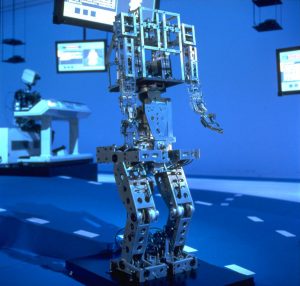AIWS Angel and Angel Mai Vàng Festival: Human Warmth in the AI Age
February 15, 2026
This week in The History of AI at AIWS.net – Waseda University built WABOT-1 in 1973. It was the first full-scale anthropomorphic robot, with a climb-control system, a vision system, and a conversation system.
The WABOT-1 was the first of its kind. It was able to communicate with a person in Japanese, as well as measure distance and direction. WABOT (WAseda roBOT) was able to walk and grab objects. It had the mental faculty of a one-and-a-half-year-old child. The robot had the WAM-4 for its hands, and the WL-5 for its legs.
The WABOT project was initiatived at Waseda University in Tokyo, Japan in 1967. Development did not fully start until 1970, and was not finished until 1973. The project was under the direction of Ichiro Kato at the School of Science & Engineering. In the 80s, Waseda University would reiterate its works on WABOT-1 with a new robot, the WABOT-2.
While the WABOT-1 was a mainly robotic project, its conversation system creates for it an important connection to the field of AI. The HAI initiative considers this an event in the History of AI due to its contributions to the development of AI.

AI World Society - Powered by BGF